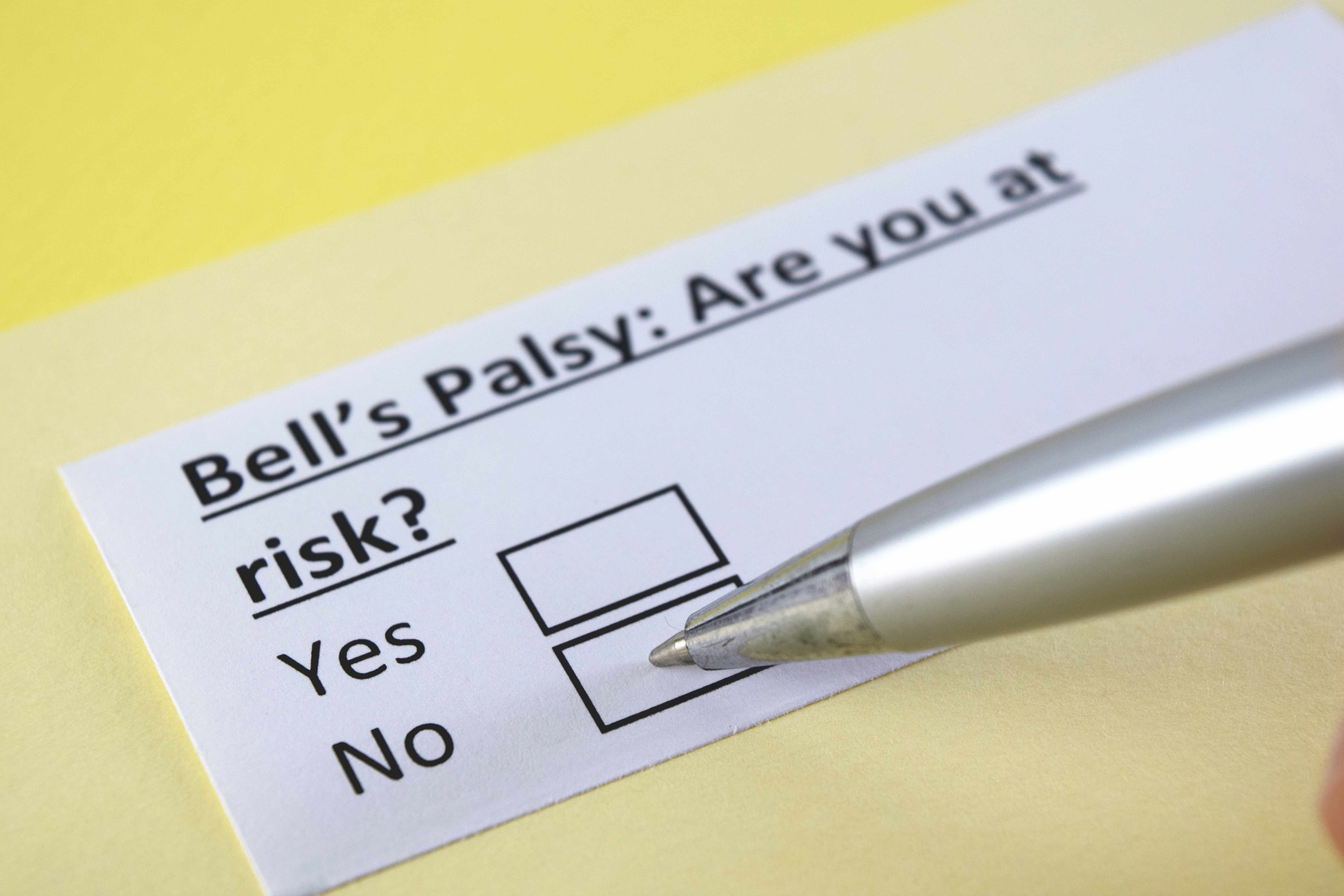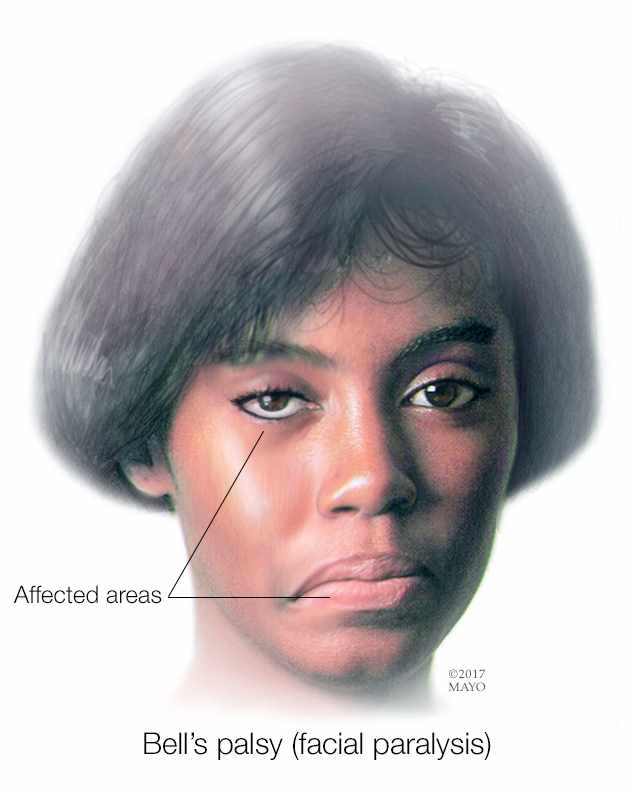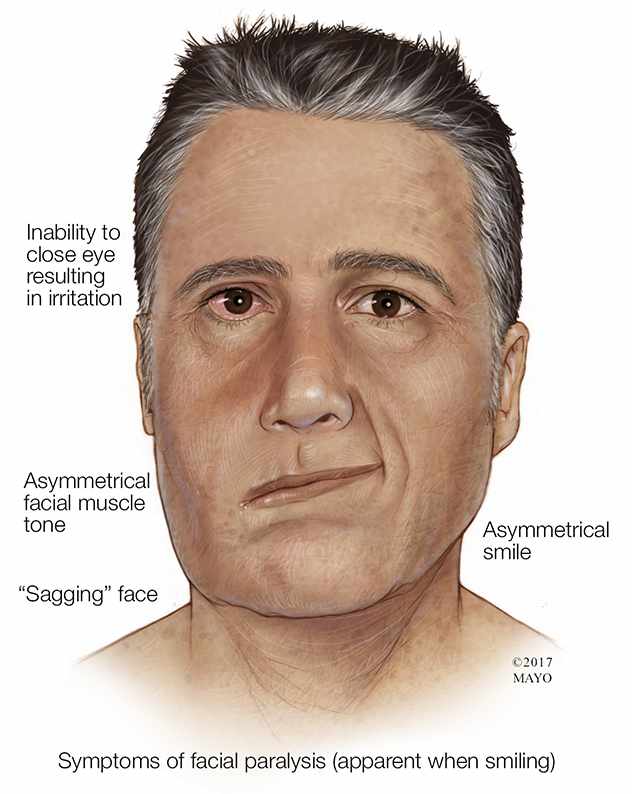-
Health & Wellness
Signs and symptoms of Bell’s palsy

Bell's palsy causes sudden weakness in your facial muscles. This makes half of your face appear to droop. Your smile is one-sided, and your eye on that side resists closing.
Bell's palsy, also known as facial palsy, can occur at any age. The exact cause is unknown, but it's believed to be the result of swelling and inflammation of the nerve that controls the muscles on one side of your face. It may be a reaction that occurs after a viral infection.
For most people, Bell's palsy is temporary. Symptoms usually start to improve within a few weeks, with complete recovery in about six months. A small number of people continue to have some Bell's palsy symptoms for life. Rarely, Bell's palsy can recur.
Signs and symptoms of Bell's palsy come on suddenly and may include:
- Rapid onset of mild weakness to total paralysis on one side of your face — occurring within hours to days
- Facial droop and difficulty making facial expressions, such as closing your eye or smiling
- Drooling
- Pain around the jaw or in or behind your ear on the affected side
- Increased sensitivity to sound on the affected side
- Headache
- A decrease in your ability to taste
- Changes in the amount of tears and saliva you produce
 Causes
Causes
Although the exact reason Bell's palsy occurs isn't clear, it's often linked to exposure to a viral infection. Viruses that have been linked to Bell's palsy include the virus that causes:
- Cold sores and genital herpes (herpes simplex)
- Chickenpox and shingles (herpes zoster)
- Mononucleosis (Epstein-Barr)
- Cytomegalovirus infections
- Respiratory illnesses (adenovirus)
- German measles (rubella)
- Mumps (mumps virus)
- Flu (influenza B)
- Hand-foot-and-mouth disease (coxsackievirus)

Risk factors
Bell's palsy occurs more often in people who:
- Are pregnant, especially during the third trimester, or who are in the first week after giving birth
- Have an upper respiratory infection, such as the flu or a cold
- Have diabetes
When to see a doctor
Seek immediate medical help if you experience any type of paralysis because you may be having a stroke. Bell's palsy is not caused by a stroke. See your doctor if you experience facial weakness or drooping to determine the underlying cause and severity of the illness.







